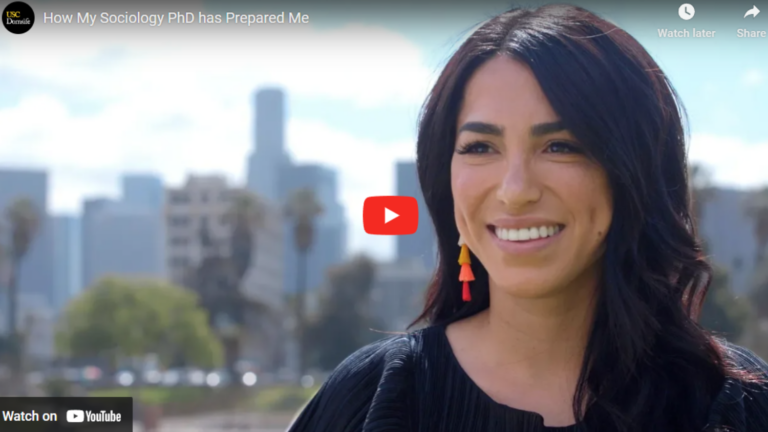2025-26 Graduate Handbook
The department of Sociology at the University of Southern California offers graduate students a vibrant academic environment in a campus that is nestled in the midst of an exciting urban center. Our graduate students enjoy an exceptionally generous financial aid package. Upon graduation, our students take academic positions in research universities, liberal arts colleges, and other academic institutions. The department offers a Doctor of Philosophy degree. Our PhD students also receive the Master of Arts (M.A. degree) after successfully completing the qualifying examinations. To learn more about graduate study at USC, see what alumni have to say about the program and our placements.
We are particularly proud that our graduate students have recently (2016-18) been awarded fellowships and grants including: ACLS/Mellon Dissertation Completion Fellowship, AAUW American Dissertation Fellowship, American Sociological Association’s Minority Fellowship Program, Ford Foundation Dissertation Completion Fellowship, Ford Foundation Predoctoral Fellowship, Fulbright Commission Fellowship, Haynes Lindley Doctoral Dissertation Fellowship, NSF Graduate Research Fellowship, NSF Doctoral Dissertation Research Improvement Grant, National Academy of Education (NAEd)/Spencer Foundation Dissertation Fellowship, and the SSRC Mellon International Dissertation Research Fellowship. Read more about our graduate students’ recent publications, fellowships, and awards.
Program Learning Objectives
Our graduates will be able to demonstrate:
- A thorough grounding in the core areas of theory, research methods, and statistics.
- This is assessed through professional-level performance in required coursework as demonstrated by well-crafted seminar papers in core courses.
- Proficiency in the process of sociological inquiry through substantive foci in two sub-areas of sociology.
- This is assessed through professional-level performance in elective coursework and on qualifying exams.
- The capacity to formulate, implement, and report the results of original social inquiry.
- This is assessed through the empirical paper, dissertation, and research collaborations with faculty.
- A mastery of skills and knowledge at a level required for undergraduate and graduate teaching.
- This is assessed through the completion of the teaching practicum and TA-ships.
- Professionalization and preparedness for the academic job market.
- This is assessed by the required presentation of the empirical paper and submission of the empirical paper for journal publication (after the required workshop in publishing), attendance at professional conferences (subsidized by the department), and attendance at department professionalization seminars, colloquium, and brown bags.
Stephanie Canizales ’18 shares how her research regarding undocumented, unaccompanied minors to the U.S. impacted her; how important USC’s location was to her studies; and what she’ll do next.
How My Sociology PhD has Prepared Me ➔

